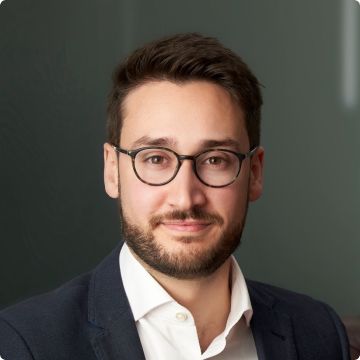Solving the Cold-Start Problem in VC: A New LP's Approach
An Interview with Thema: Europe’s Strategic LP for Emerging Fund Managers
One of the most under-appreciated but high-impact areas of a venture capitalist’s job is the ability to raise a fund. It’s an area unfamiliar to most investors (including myself), and it’s hard to appreciate how hard it is until you try to raise a fund yourself.
Ophelia Brown of Blossom Capital, whose VC career started at Index Ventures and LocalGlobe before she struck out on her own, described the fundraising process as “brutal!” She admits, “I’m very glad that I was quite naive coming into the fundraising process”, as she might not have pursued it otherwise.
Hussein Kanji of Hoxton Ventures shared a similar view in a separate interview. If he had known that raising a debut fund would take 39 months and a heap of rejections, he wouldn’t have done it. “Stalling your career for that long is suicidal,” he warned.
In an exceptionally candid blog post, my colleague and friend Check Warner wrote that raising a fund was “one of the hardest things” she’s ever done. From being told that “women can't make money” and that “this fund will never be commercially viable”, to spending over £100,000 of her savings to get going, raising a fund was incredibly tough.
This is why when I saw that a new fund-of-funds had launched with an offering that alleviates unfair barriers to starting a VC firm, I quickly reached out and asked if I could share more about what they're building.
That firm is called Thema. They invest in first-time general partners (GPs) of new VC firms. Thema provides an all-in-one package that includes a first cheque of up to £5m into a debut fund, operational support, and a network of LP co-investors.
Thema's co-founder and Chief Investment Officer, Sam Ettelaie, was previously at the British Business Bank. He has a track record of backing VCs to the tune of £400m across a list of funds, including Concept Ventures, JamJar Investments, Epidarex Capital and Ada Ventures.
We corresponded via email and what follows is an exclusive interview with Sam. If you’re thinking about building a VC firm someday, be sure to check out what Thema has to offer.
Interview

(1) Hi Sam, thanks for making the time. Let's jump right into it. What's broken about launching a new VC firm, and how do you plan to solve it with Thema?
“Breaking into VC often involves overcoming substantial barriers to entry. You need upfront set-up capital, a historic investment track record, and insights into an opaque world—this traditionally restricts access.
At Thema, we aim to equip talented individuals with the necessary tools and support to launch and grow a VC firm. Our mission is to promote a more meritocratic industry.
We provide new GPs with operational and regulatory guidance alongside preferential rates, which can reduce first-year operating costs by approximately 40%. This helps alleviate some of the hurdles of establishing a VC fund, especially if your debut fund size is on the smaller end.
Beyond this, we offer office space and act as a quasi-venture partner, contributing institutional rigour and expertise to first-time GPs.
Fundamentally, our role is to be a catalytic cornerstone LP. We are writing LP tickets of up to £5m and are happy to be the first to sign a subscription agreement. We encourage our GPs to leverage our due diligence documents to support conversations with soft-committed LPs and other LPs who have shown an interest.”
(2) Almost 500 emerging managers have applied for your programme. When you think about your best applicants so far, what are the distinct or contrasting qualities among them?
“It’s been a very busy few weeks at Thema, with us receiving c.480 enquiries in our first eight weeks. Several of the standout proposals share a commonality in their approach that distinguishes them from others.
They possess a clear vision for their fund management business that extends beyond the immediate fund they are raising. This vision isn't just based on ambitious financial goals. It also includes a clear plan that considers scaling of the team and the changing dynamics with having larger funds.
Humility is another common trait in the best applicants. They show a keen awareness of their strengths and, more importantly, areas where they need support. They understand the value of collaboration, are open to feedback and we can see how Thema can clearly support them.
Finally, the strongest emerging managers demonstrate an in-depth, granular knowledge of relatively niche areas, accompanied by strong conviction in their investment thesis.
These investors aren't just following market trends. They're deeply informed about the verticals they will invest in, and can demonstrate a level of insight that is a direct result of experience. We see this as a competitive edge, since high caliber GPs can identify overlooked or undervalued areas of investment that have the potential to generate outsized returns for LPs.”
(3) Generating returns in venture is tough. And it can take a long time to know if a GP is great. In your experience, what are the leading indicators (if any) that suggest a GP is onto a winning strategy?
“The archetype here is a GP who is putting in the work to stay at the forefront of their domain, trusting in their conviction for the future, and understanding the time it may take for their conviction to pay dividends.
While some GPs may find the need to adjust their strategies in response to emerging opportunities, maintaining a core focus is often key to generating returns. This conviction becomes even more significant when the GP has an extensive network within a specific circle. If we've invested in a GP, we want them to be laser-focused on executing what they told us they would do.
Another point—which is less about a winning investment strategy and more about a winning GP and LP relationship—is open communication and transparency. Trust and confidence are built through transparent communication, particularly during challenging times.”
(4) The UK LP market lags behind the US. For example, you once shared data showing that there are more repeat LPs in the US than in the UK. What's holding the UK back, and how is it changing?
“I recently updated the dataset, revealing a consistent year-on-year increase in repeat LPs since I began tracking this in 2020. This is promising. It indicates a maturing LP asset class and a growing recognition that UK VC funds are an investable option.
In my view, while European GPs have matured significantly over the past decade, the level of sophistication of European LPs is still relatively low. In particular, some family offices and corporates continue to believe in their ability as stock pickers. They favour direct investment into companies instead of backing funds, even when they have a multi-asset portfolio where venture is a tiny portion of their overall portfolio allocation.
In light of that, conversations with GPs often revolve around their aspiration to attract US endowment capital. This pressures some GPs into scaling potentially faster than they should in order to align with the remit of these allocators.
The limited involvement of pension funds and endowments in UK VC funds is undoubtedly hindering the ecosystem. I have a relatively pessimistic view on the likelihood of pension fund capital being invested in early-stage venture, and particularly emerging managers. Additionally, the lack of robustness of entities likely to attract a substantial portion of LP capital remain a concern.”
(5) How might the UK foster a more diverse pool of GP talent?
“Further innovation from leading entities who can seed high quality GP prospects and teams before they have established a fund would help. More entities who are willing to think creatively about their role in the market could significantly enhance diversity within the industry by lowering the substantial financial barriers involved in setting up a fund.
Drawing from personal experience, I've seen that taking on multiple advisory roles for basic income whilst fundraising detracts from channeling your time and focus. The reality is that most aspiring fund managers cannot afford to go unpaid for 18-24 months. This is especially true for those who are early in their careers but may have some of the best ideas to fund.
Furthermore, if structured correctly, the economics of seeding GPs is highly favourable. A relatively modest upfront commitment can reap substantial returns in the future.
I’m also a big fan of LPs willing to incubate GPs, providing institutional excellence upfront, which could expedite the fundraising process.”
(6) Thema is a refreshing addition to the venture ecosystem. Why haven't we seem more of this model before?
“Creating a fund-of-funds that invests in first-time and emerging European funds is an enormously challenging task. It requires understanding the market and the ability to secure trust over a long period from LPs.
It's great to see other private fund-of-funds who have succeeded in raising for this strategy, particularly those who have been in the market for several years. Articulating the subtleties of Thema's investment strategy, which has a multi layered return profile, can also be challenging, particularly on a brief call with prospective LPs.
Additionally, the hands-on nature of our model demands a team with diverse experience. My cofounder George Askew has a background in structuring and operations. Our head of operations previously worked at several VC funds. They are well-versed in the intricacies found within the VC landscape. Finally, my own experience focuses almost exclusively on investing and supporting first-time GPs. This collective skill set is important and I feel relatively uncommon.”
8) How can prospective GPs get your interest, and how can they contact you?
“The best way for GPs to apply is through our website. We recognise that our networks are limited in reaching all potential talent, and we want to remove as much unconscious bias from the process as possible. Assessing all proposals in a standardised manner helps ensure that we treat all applicants fairly, while keeping the process transparent.
We are eager to talk to people early. Over the past four years, we have been monitoring roughly 160 individuals at the Principal or Partner level at VC firms where there could be an imbalance in their long-term economic incentives. We are also interested in operators who, at present, may not exhibit the risk/reward profile for VC but may consider this a field in future years.”
Thank you Sam!



Great write up, and I love the concept of helping new VC's get started - no wonder there was so much interest.